42 Foods High in B Vitamins to Include in Your Diet
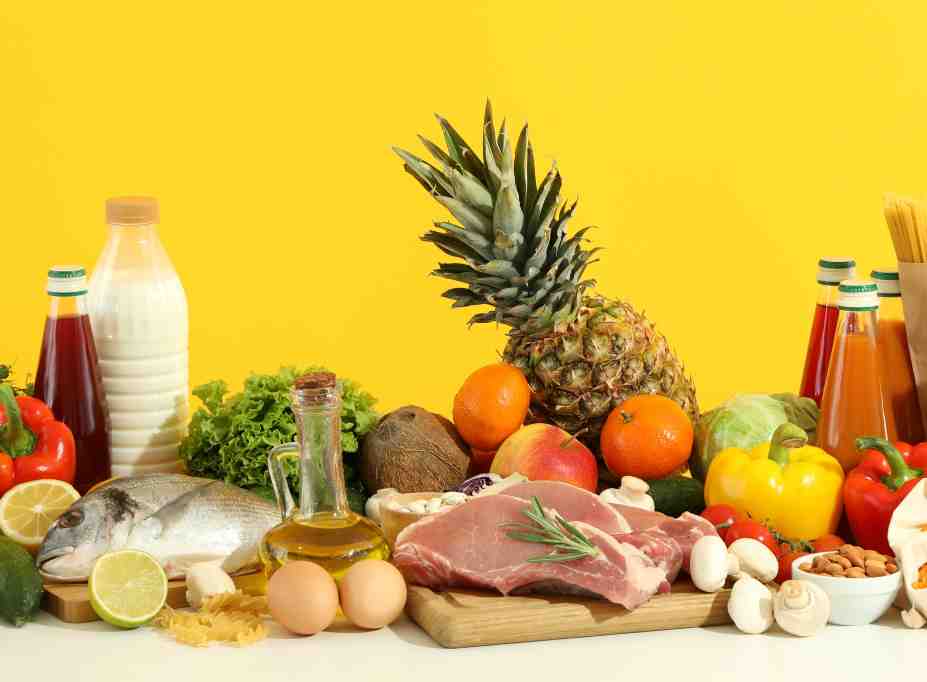
As the world becomes more health-conscious, people attach more significance to vitamin and mineral consumption in everyday food diets. The eight B vitamins release energy from carbohydrates and transport nutrients across the body. Thus, having foods rich in vitamin B can benefit most individuals and their health conditions.
Are you looking for ways to fine-tune your diet and make it more nutritious? This article will give you a detailed account of the suitable food sources with high vitamin content!
Read about the sources of foods rich in vitamin B.

Table of Contents

What is Vitamin B?
Eight necessary nutrients, known as B vitamins, are involved in the function of numerous organs and body systems. They support several processes, such as converting food into energy, making blood cells, and preserving skin health. B vitamins are necessary to ensure the body's cells operate as they should.
Eight different forms of B vitamins exist, and they are as follows:
Thiamin (vitamin B1)
Riboflavin (vitamin B2)
Niacin (vitamin B3)
Pantothenic Acid (vitamin B5)
Vitamin B6
Biotin (vitamin B7)
Folate (vitamin B9)
Vitamin B12
Together, they are called the vitamin B complex.
What are the Sources of Vitamin B?
While many foods naturally contain B vitamins, heat and alcohol can readily destroy them. Food processing also depletes foods of their B vitamin content, particularly white flour, white bread, and white rice.
You must constantly obtain the B group vitamins from your diet because your body cannot keep them entirely. Vitamin B is abundant in brown rice, eggs, beans, citrus fruits, avocados, meat, chicken, fish, etc.
Top 42 Foods Rich in Vitamin B
Thus, vitamin B is essential for the human body, and individuals must consume vitamin B foods. It is always advisable to include natural vitamin B rich foods instead of relying on vitamin supplements. The process is more cost-effective and accessible of side effects.
Usually, food items with 10%-19% of Reference Daily Intake (RDI) per serving are considered a good source, while those with 20% RDI are considered high in vitamins. In this context, you can include the below-mentioned vitamin B food sources in your daily diet.
List of Top Vegetables Rich in Vitamin B
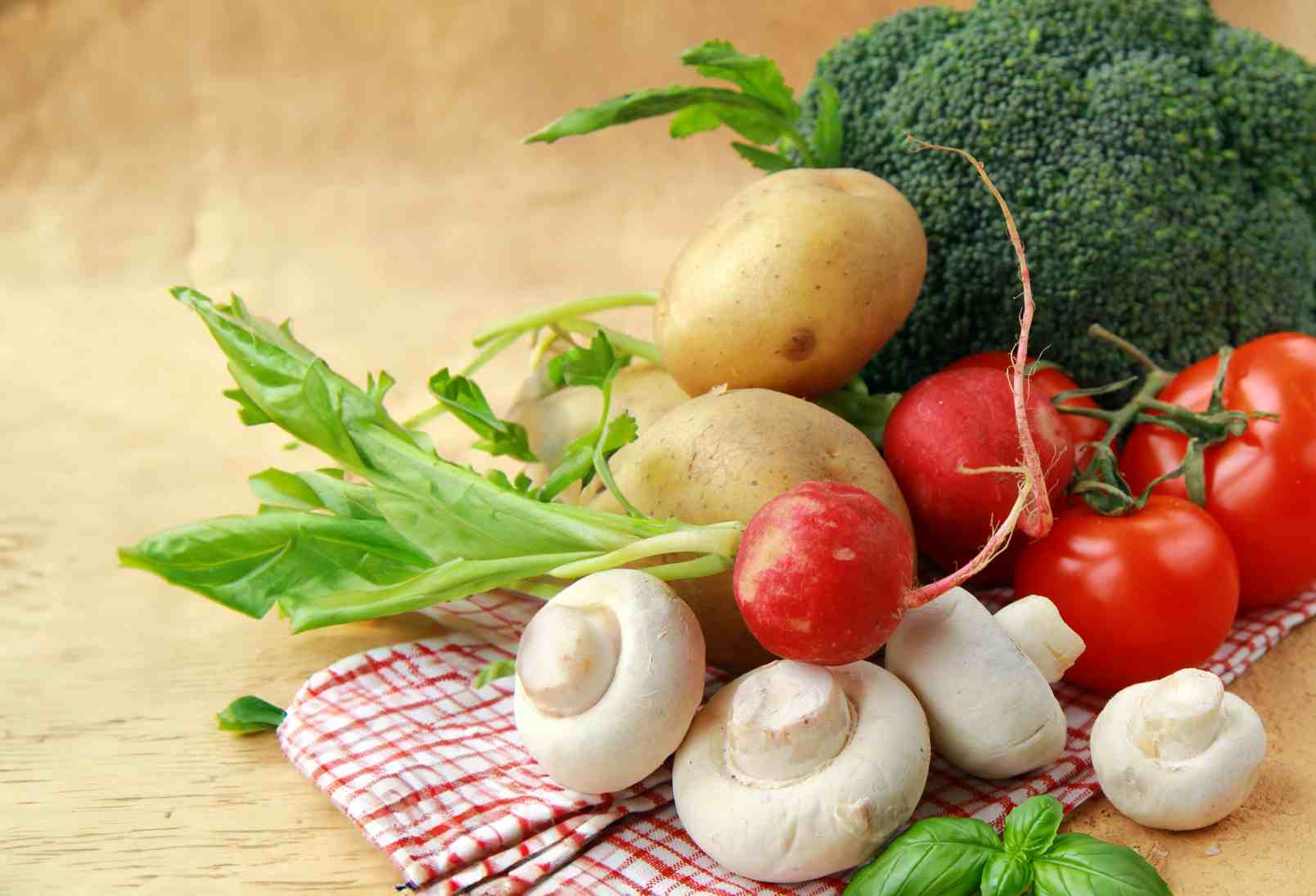
Green leafy vegetables and peas are the best sources of vitamin B due to their easy availability. Here is a list of vegetables one can check to confirm which food vitamin B is found in.
SNo. |
Vegetables | Description |
| 1 | Leafy green vegetables(Raw/cooked spinach, turnip greens, and romaine lettuce, Raw broccoli) | These are often rich sources of vitamin B foods. They mostly contain vitamin B9. Raw spinach, for instance, can be one of the essential vitamin B vegetables. In 85 grams of spinach, individuals can gain 41% of RDI. On the other hand, the same quantity comes with 31% of RDI when cooked. Mentions can also be made of turnip greens and romaine lettuce. Rich in vitamin B9 (Folate), they come with 25% and 29% RDI per 85 grams. On the other hand, broccoli is again rich in vitamin B9 (Folate). 14% of RDI comes with 91 grams of raw broccoli. |
| 2 | Green peas | These are rich in vitamin B1 (Thiamin), and their low glycaemic index (GI) rank makes them diabetic-friendly. |
| 3 | Potatoes | These are rich foods that contain vitamin B. It is a source of vitamins B1, B3 and B6 and is enriched with phosphorus, potassium and magnesium. About 173 grams of baked potato contains 27% RDI. On the other hand, 27% of vitamin B6 Daily Value (DV) is seen in sweet potatoes. |
| 4 | Brussels sprouts | Another mention can be made of Brussels sprouts as they are a rich source of folate. |
| 5 | Chickpeas | Apart from that, chickpeas can be considered important vitamin B rich foods. About 164 grams of chickpeas come with 71% DV of Folate. Moreover, it also comes with 13% DV of vitamin B6. |
| 6 | Carrots | In addition, carrots can be a rich source of vitamin B6, and beetroots have a 4% DV of vitamin B6. |
| 7 | Corn | It is, again, rich in vitamin B12. |
| 8 | Mushrooms | Additionally, mushrooms are rich in riboflavin, niacin, and pantothenic acid. The combination is helpful for heart protection. Another rich vegetable can be asparagus, which is rich in folate. |
| 9 | Legumes | In this context, different legumes can be considered. For instance, about 85 grams of black beans have 32% RDI. |
| 10 | Green soybeans | Green soybeans come with 60% RDI for every 85 grams. |
| 11 | Kidney beans | In addition, the same quantity of kidney beans is rich in vitamin B, containing about 29% of RDI. |
| 12 | Lentils | These can also be rich sources of vitamin B, as they have 45% of RDI. |
| 13 | Pinto beans and roasted soy nuts | Conversely, pinto beans and roasted soy nuts benefit individuals, providing 37% and 44% of the RDI for vitamin B, respectively. |
List of Top Fruits Rich in Vitamin B
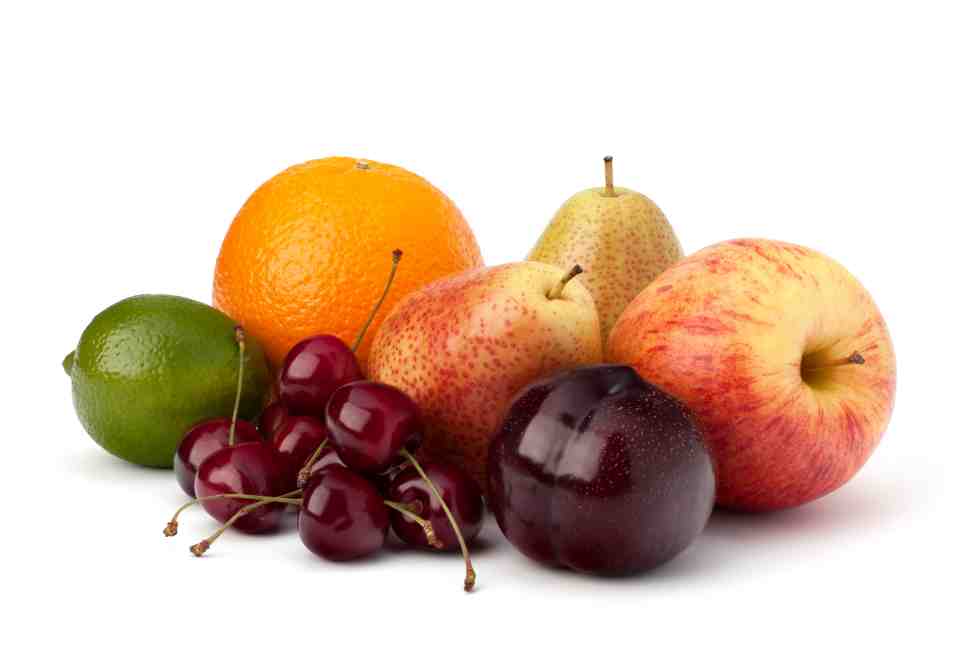
Have fruits during breakfast to ensure vitamin B intake early in the day. There are various vitamin B fruit options.
SNo. |
Fruits | Description |
| 14 | Citrus fruits (Oranges, Clementine, Lemons) | People highly regard citrus fruits such as oranges because of their rich vitamin sources. About 240 ml of orange juice contains 15% of the RDI of Folate. On the other hand, 74 grams of clementine each contain 5% of the DV for Folate and Thiamine. Moreover, lemons can be a good source of vitamin B6. However, lemons are acidic, and overconsumption can be a health hazard. |
| 15 | Avocados | These are also rich sources of vitamin B foods. About 150 grams of avocado serves 30% of the DV and 23% of the RDI of vitamin B6. |
| 16 | Bananas | These are known for being fruits rich in vitamin B. They contain high amounts of vitamins B6 and B12. |
| 17 | Grapes | These are high in vitamin B12. |
| 18 | Peaches | These can help individuals develop a 2% DV of niacin and folate. Pineapples, with their high amount of thiamin, can also be considered in this regard. |
| 19 | Strawberries | Strawberry can also be mentioned. They are rich in folate and help with average tissue growth and development. |
| 20 | Raspberries | In addition, raspberries are a source of vitamin B6 and can be mentioned when considering fruits containing vitamin B. |
| 21 | Watermelons | These, again, contain vitamin B6, which can be healthy for individuals. |
| 22 | Plums and prunes | These are similarly rich in vitamin B. About ½ cup of prunes contains 1.6mg of niacin. Thus, it is evident that fruits can effectively develop your diet with vitamin B foods. |
List of Top Dairy Products Rich in Vitamin B
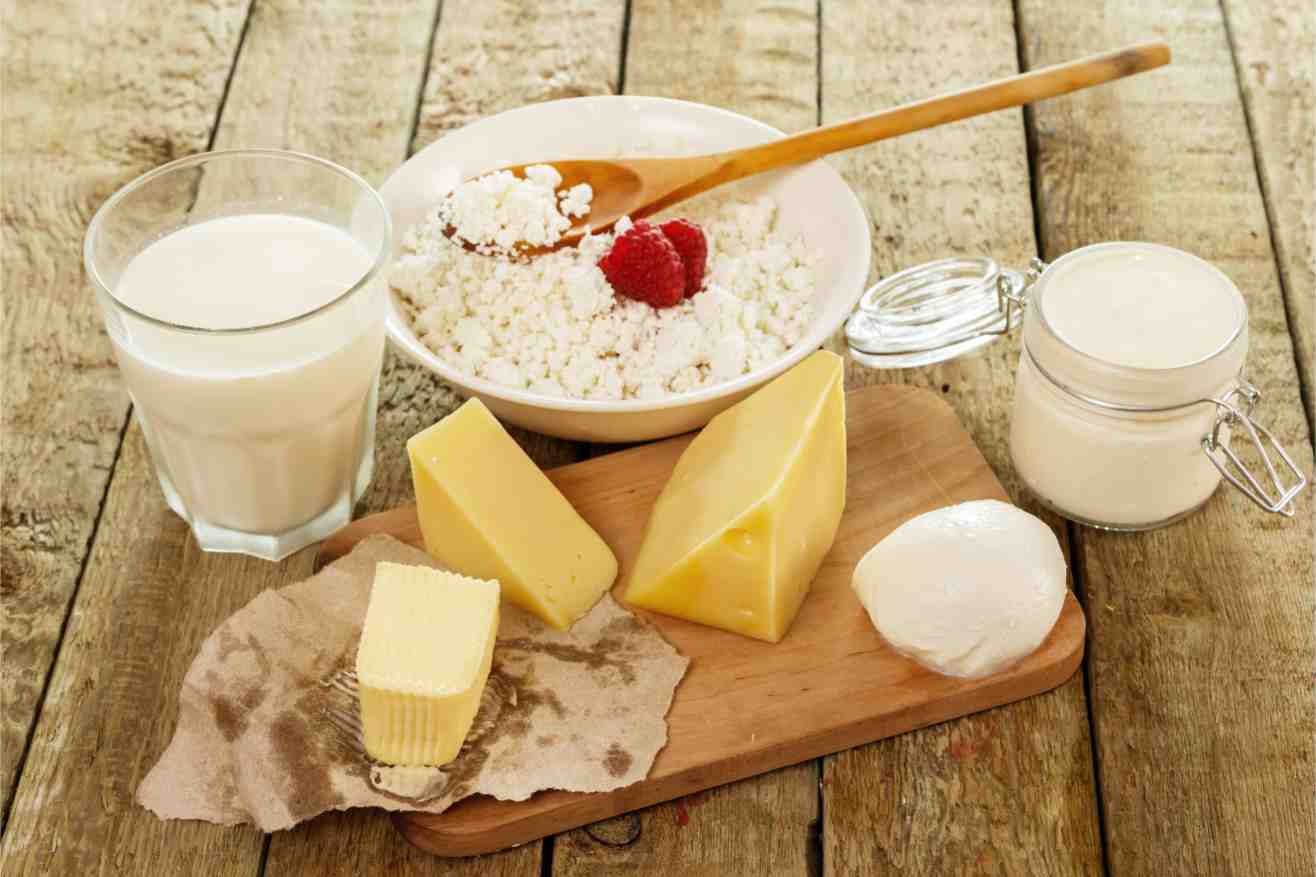
You can have these dairy products to increase your vitamin B intake. Various dairy products are considered rich sources of vitamin B foods.
SNo. |
Dairy Products | Description |
| 23 | Milk | This, for instance, is a good source. About 240ml of milk provides 26% RDI for riboflavin. |
| 24 | Yoghurt | Similarly, yoghurt is notable for its riboflavin and cobalamin content. It provides 18% of the RDI for vitamin B2 and 26% of the RDI for vitamin B12. |
| 25 | Cheese | Another source is cheese. About 22 grams of Swiss cheese contains 28% of the DV and is a rich source of vitamin B12. |
List of Nuts and Seeds Rich in Vitamin B
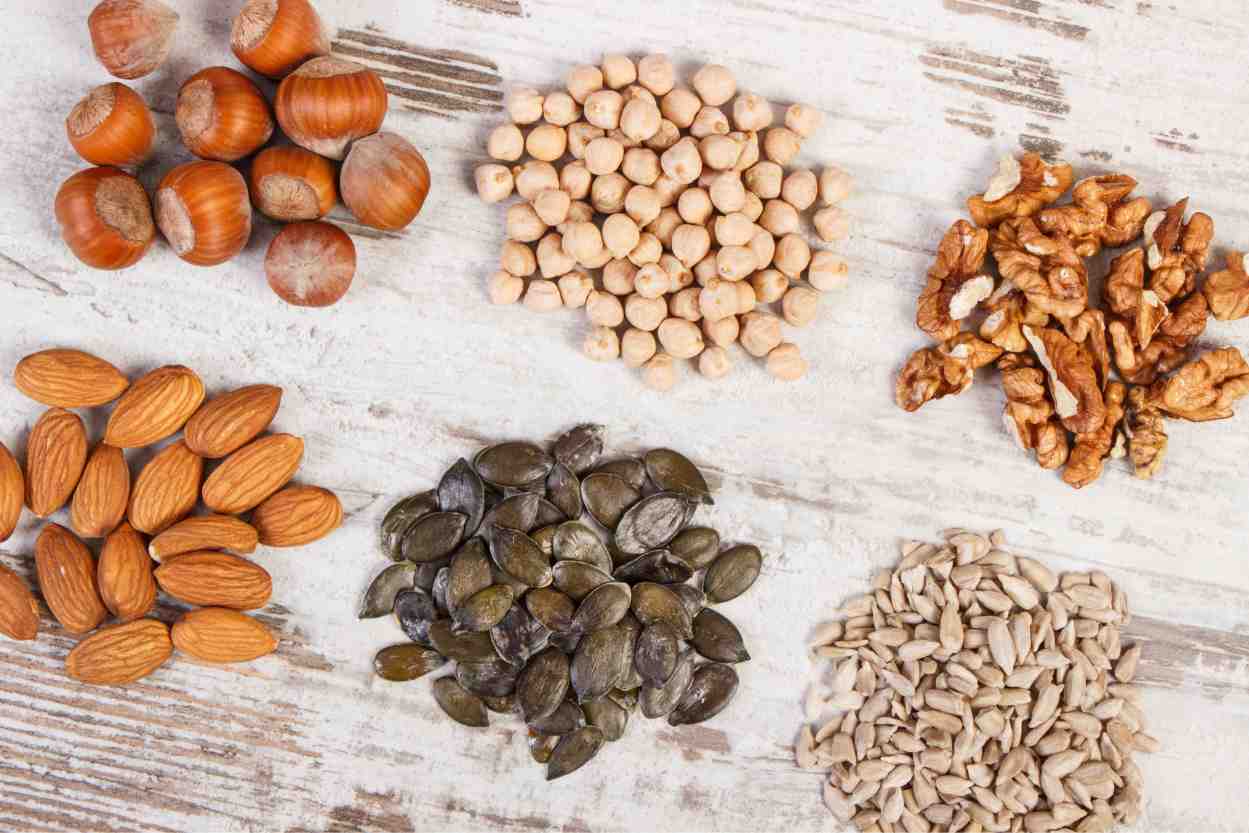
Here are a few nuts and seeds to snack on whenever you like. Go through the list to pick your favourite vitamin B packed snack.
SNo. |
Nuts and Seeds | Description |
| 26 | Almonds | These adaptable and crunchy nuts include a significant amount of vitamin B12 and their many health advantages. |
| 27 | Pistachios | Not only are these bright green nuts delicious, but they also contain a fair quantity of vitamin B12. |
| 28 | Cashews | Not only are cashews delightful with their rich, buttery flavour, but they are also an excellent source of vitamin B12. |
| 29 | Dates | In addition to being delicious, dates—prized for their naturally occurring sweetness and chewy texture—are also a surprisingly rich source of vitamin B12. |
| 30 | Raisins | These dehydrated grapes offer a respectable supply of vitamin B12 and are a handy and transportable snack. |
| 31 | Pumpkin seeds | Pumpkin seeds are excellent providers of vitamin B12. This little powerhouse is also abundant in vital nutrients. |
| 32 | Sunflower seeds | Sunflower seeds are rich in fibre, vital minerals, and vitamin E. They also contain a small amount of vitamin B12. |
| 33 | Figs | Figs are a delightfully sweet and tasty way to get your vitamin B12. |
| 34 | Walnuts | Walnuts are well-known for their ability to sharpen the mind and for being high in omega-3 fatty acids. They also contain a fair quantity of vitamin B12. |
| 35 | Pecans | Pecans are another dry fruit high in vitamin B12 due to their crispy texture and buttery flavour. |
List of Top Non Vegetarian Food Items Rich in Vitamin B
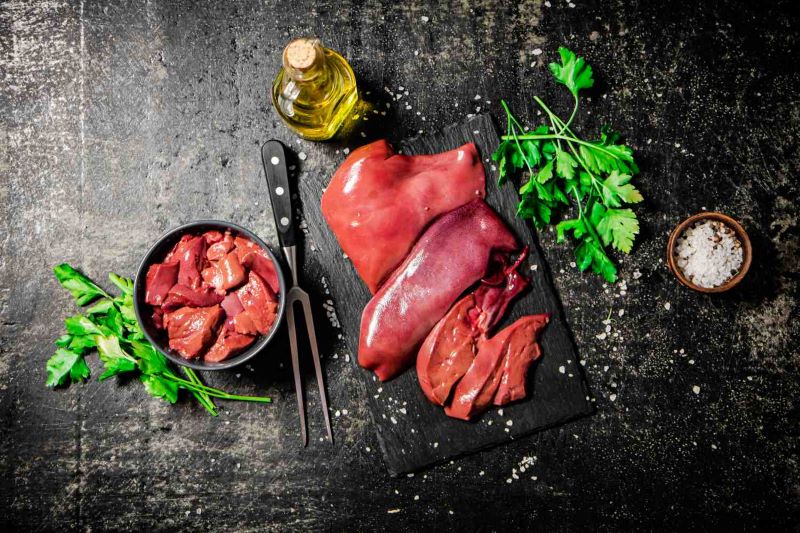
Include animal proteins in your daily meals for the necessary vitamins and nutrients. Animal proteins are highly vitamin rich food products.
SNo. |
Animal Protein | Description |
| 36 | Salmon | About 100 grams of cooked salmon provides 18% RDI in B1, 29% in B2 and 50% in B3. It is also rich in vitamins B5, B6 and B12. |
| 37 | Organ meat | Organ meat, such as liver, is again rich in vitamin B. 100 grams of beef liver contains high amounts of vitamin B. It provides 201% RDI in vitamin B2, 138% RDI in vitamin B7 and 1,386% RDI in vitamin B12. |
| 38 | Eggs | About 50 grams of eggs have 15% RDI in B2 and 33% RDI in B7. |
| 39 | Beef | Eggs are another essential source. About 100 grams of beef has 39% RDI in B2 and 29% RDI in B12. |
| 40 | Chicken and turkey | Other significant sources are chicken and turkey, rich in vitamins B3, B5, B6, and B12. |
| 41 | Pork | On the other hand, pork is an essential addition to vitamin B foods. It has 69% of the RDI in vitamin B1 and is rich in vitamins B2, B3, and B6. |
| 42 | Trout | When cooked, trout can be vitamin-rich. A hundred grams of cooked trout has 28% of the RDI in vitamin B1 and 125% of the RDI in B12. |
Role of Vitamin B in Keeping Your Body Healthy
Vitamin B is an essential water-soluble vitamin that is mandatory for various bodily processes. Out of 13 vitamins, 8 are vitamin B. These include the following.
- Thiamin (B1)
- Biotin (B7)
- Riboflavin (B2)
- Folate or Folic Acid (B9)
- Pantothenic acid (B5)
- Pyridoxine (B6)
- Niacin (B3)
- Cobalamin (B12)
Collectively, these are called B complex vitamins. These vitamins help produce energy and create essential molecules in the cells. Besides this primary role, vitamin B also plays the following roles in keeping the human body healthy.
- Immunity System: Vitamin B helps strengthen your immunity. In particular, vitamin B6 or Pyridoxine supports the biochemical reactions within the immunity system. Thus, people who lack immunity often opt for vitamin B supplements.
- Brain Health: Healthcare researchers have been on a quest to discover the role of vitamins in improving brain health. They opine that the higher presence of vitamin B in the blood often results in improved performance in memory, word and sentence formation, and problem-solving tests.
- Disease Prevention: Vitamin B has various roles in disease prevention. For instance, vitamins B6 and B12 reduce heart disease and a few types of cancer. However, the limits should be clear since overconsumption of these vitamins can increase the risks of lung cancer in men.
How Much Vitamin B Should You Intake?
The following table discusses the amount of vitamin B necessary for a healthy lifestyle:
|
Type of Vitamin B |
Standard Quantity (19-64 Years) Per Day |
Overconsumption Impact |
|
Thiamin (B1) |
1 mg for men and 0.8 mg for women |
Not much research on overconsumption effects of thiamin |
|
Riboflavin (B2) |
1.3 mg for men and 1.1 mg for women |
Not much research on overconsumption effects of riboflavin |
|
Niacin (B3) |
16.5 mg for men and 13.2 mg for women |
Skin flushes, liver damage |
|
Pantothenic acid (B5) |
There is no set amount of standard consumption. |
Not much research on overconsumption effects of Pantothenic acid |
|
Pyridoxine (B6) |
1.4 mg for men and 1.2 mg for women |
Loss of feeling in arms and legs leading to peripheral neuropathy |
|
Biotin (B7) |
Minimal amounts to help the body create fatty acids |
Not much research on overconsumption effects of Biotin |
|
Folate [Folic Acid] (B9) |
200 micrograms for both men and women/400 micrograms for pregnant women |
Nervous system damage |
|
Cobalamin (B12) |
1.5mg for both men and wo men |
Not much research on overconsumption effects of cobalamin |
Therefore, it is evident that the consumption of vitamin B is an essential requirement for a healthy lifestyle. There are numerous foods rich in vitamin B and it is mandatory for individuals to have a planned diet since overconsumption of such vitamins can have adverse effects. On the other hand, a balanced vitamin rich food diet can help you lead a longer and healthier life.
Useful Tools to Track Your Health
Health Benefits of Including Vitamin B Rich Foods
The benefits of vitamin B-rich foods in your diet are manifold, from energy production to maintaining brain health, supporting cardiovascular function, and promoting healthy skin and hair.
- Energy Boost: Vitamin B complex, including B1 (thiamine), B2 (riboflavin), B3 (niacin), B5 (pantothenic acid), B6 (pyridoxine), B7 (biotin), B9 (folate), and B12 (cobalamin), plays a crucial role in converting carbohydrates into glucose.
- Brain Function: B vitamins synthesize neurotransmitters, crucial for transmitting signals between brain cells. Adequate intake of B vitamins is essential for cognitive function, memory, and overall brain health.
- Red Blood Cell Production: Vitamin B12 and folate (B9) are essential for synthesising red blood cells in the bone marrow. These vitamins are necessary for the formation of haemoglobin.
- Skin and Hair Health: Biotin (B7) is especially well-known for promoting robust and resilient hair and nails. Riboflavin (B2) and niacin (B3) help maintain the integrity of the skin barrier and protect against damage from environmental stressors.
- Mood Regulation: Several B vitamins, including B6, B9, and B12, are involved in synthesising neurotransmitters such as serotonin, dopamine, and norepinephrine, which regulate mood and emotions.
- Cardiovascular Health: B vitamins, particularly B6, B9, and B12, play a crucial role in lowering levels of homocysteine, an amino acid that, when elevated, is associated with an increased risk of cardiovascular disease, including heart attack and stroke.
- Digestive Health: B vitamins metabolise carbohydrates, fats, and proteins, essential nutrients for maintaining digestive health. Thiamine (B1) produces hydrochloric acid in the stomach, which is necessary for proper digestion.
Different Ways to Include Vitamin B Rich Foods in Your Diet
These dishes provide delicious ways to incorporate B vitamin-rich foods into your diet, helping you maintain overall health and well-being.
Symptoms of Vitamin B Deficiency
Lack of vitamin B leads to various health issues. Here's a detailed elaboration for each symptom of vitamin B deficiency:
- Fatigue and Weakness: Vitamin B plays a crucial role in energy production, so when levels are low, it can lead to feelings of fatigue and weakness. This can impact daily activities and overall productivity.
- Numbness or Tingling in Hands and Feet: Vitamin B deficiencies, particularly B12, can cause nerve damage, leading to numbness or tingling, especially in the extremities like hands and feet. This condition is known as peripheral neuropathy.
- Difficulty Walking: Severe vitamin B deficiency, especially B1 (thiamine), can result in a condition called beriberi, characterised by difficulty walking due to muscle weakness and nerve damage.
- Anaemia: Vitamin B12 and folate are essential for the production of red blood cells. Deficiency can lead to megaloblastic anaemia, where red blood cells are larger than normal and fewer in number, leading to fatigue and weakness.
- Memory Problems: Vitamin B12 deficiency has been linked to cognitive impairments, including memory loss and difficulty concentrating. Adequate levels of B vitamins are necessary for maintaining healthy brain function.
- Irritability: Low levels of vitamin B6 can affect neurotransmitter function in the brain, potentially leading to mood disturbances such as irritability, anxiety, and even depression.
- Depression: Several B vitamins, including B6, B12, and folate, are involved in neurotransmitter synthesis and regulation. Deficiency in these vitamins has been associated with an increased risk of depression and other mood disorders.
- Skin Problems: Vitamin B deficiencies can manifest in various skin issues, including dermatitis (inflammation of the skin) and eczema (itchy, inflamed patches of skin). B vitamins play a role in maintaining skin health and integrity.
- Digestive Issues: Vitamin B deficiencies can affect the digestive system, leading to symptoms such as nausea, vomiting, diarrhoea, and abdominal cramps. These symptoms can further exacerbate nutrient malabsorption, perpetuating the deficiency cycle.
- Mouth Sores or Cracks at the Corners of the Mouth: Deficiency in specific B vitamins, particularly B2 (riboflavin) and B3 (niacin), can result in oral health issues such as mouth sores (also known as angular cheilitis) and cracks at the corners of the mouth.
What are the Health Risks of Not Getting Enough Vitamin B?
Ensuring an adequate intake of vitamin B through a balanced diet or supplements is crucial for overall health and well-being, as these vitamins play numerous vital roles in the body's functioning. Not getting enough vitamin B can lead to various health risks, including:
Vitamin B12 and folate deficiency can result in megaloblastic anemia, where red blood cells are more significant than usual and fewer in number.
Vitamin B12 deficiency can cause neurological issues such as peripheral neuropathy, characterised by numbness, tingling, and nerve damage in the hands and feet.
Low vitamin B6, B12, and folate levels increase cardiovascular disease risk.
Vitamin B deficiencies, especially B12, have been linked to cognitive impairments and an increased risk of Alzheimer's disease and dementia.
Pregnant women with inadequate intake of folate (Vitamin B9) are at a higher risk of giving birth to babies with neural tube defects, such as spina bifida.
Deficiencies in these vitamins can weaken the immune response, making individuals more susceptible to infections and illnesses.
Low levels of vitamin B6, B12, and folate have been linked to an increased risk of mood disorders such as depression and anxiety.
Vitamin B deficiencies can manifest in skin issues, including dermatitis, eczema, and hair loss.
Side Effects of Excessive Vitamin B Intake
Excessive intake of vitamin B, mainly through supplementation, can lead to several side effects:
- Nerve Toxicity: Consuming very high doses of vitamin B6 (pyridoxine) over an extended period can result in nerve toxicity, leading to symptoms such as numbness, tingling, and nerve damage, particularly in the hands and feet.
- Skin Sensitivity: Excessive intake of vitamin B3 (niacin) can cause skin flushing, itching, and tingling sensations, especially in the face and upper body. This reaction, known as niacin flush, is more familiar with high-dose niacin supplements.
- Digestive Issues: High doses of specific B vitamins, such as B3 (niacin) and B5 (pantothenic acid), can cause gastrointestinal symptoms such as nausea, vomiting, diarrhoea, and abdominal cramps.
- Increased Risk of Cardiovascular Events: Some studies suggest that high doses of certain B vitamins, particularly B6, B12, and folate, may increase the risk of cardiovascular events, especially in individuals with pre-existing heart conditions.
- Masking of B12 Deficiency: Excessive intake of folic acid can mask vitamin B12 deficiency, leading to a delay in diagnosis and treatment. This can result in neurological damage and other complications associated with B12 deficiency.
- Interference with Lab Tests: High doses of certain B vitamins, such as B6 and B12, can interfere with the accuracy of certain laboratory tests, including blood tests for specific medical conditions. This interference can lead to misleading results.
- Allergic Reactions: In rare cases, excessive intake of vitamin B supplements can cause allergic reactions, including skin rashes, itching, swelling, and difficulty breathing.
- Kidney Stones: Very high doses of vitamin B6 (pyridoxine) have been associated with an increased risk of kidney stone formation, especially in individuals predisposed to or with pre-existing kidney conditions.
Should You Take a Vitamin B Supplement?
Most people's diets provide them with adequate B vitamins. The greatest method for your body to absorb these vitamins is through whole foods. A supplement is unnecessary unless your doctor has verified that you lack a particular B vitamin. If they identify a deficit, they will advise you to incorporate a vitamin B complex supplement into your regimen or take a particular B supplement.
Your doctor might be able to suggest a particular brand of supplements if they have identified a deficiency. Always carefully read the labels, and abide by the manufacturer's instructions. Ask your doctor if you have any queries regarding the dosage.
Therefore, it is evident that the consumption of vitamin B is an essential requirement for a healthy lifestyle. Numerous foods are rich in vitamin B, and individuals must have a planned diet since overconsumption of such vitamins can have adverse effects. On the other hand, a balanced vitamin rich food diet can help you lead a longer and healthier life.
Protect What Matters - Explore Other Insurance Options














